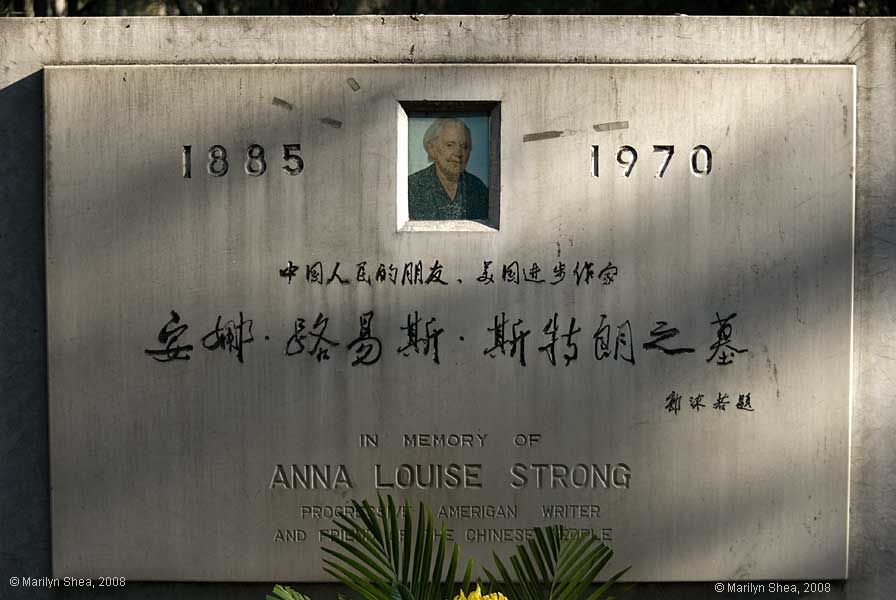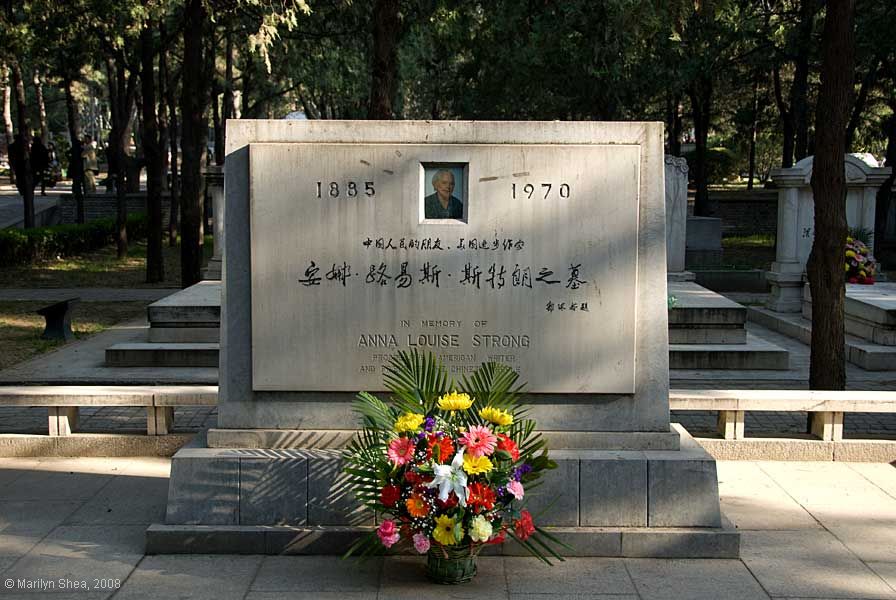 |
| Anna Louise Strong 安娜•路易斯•斯特朗 (Ānnà Lùyìsī Sītèlǎng) was born in Nebraska in 1885. Her travels from a rural town during the horse and buggy days to a life in China took her through much of modern history. Her minister father relocated the family several times, ending up in Oak Park, a suburb of Chicago. She was exceptional from the beginning. She attended Bryn Mawr, Oberlin, and completed her doctorate in Philosophy at the University of Chicago, an uncommon accomplishment for a woman in those days.
Her early career focused on children and education. She became convinced that the social conditions surrounding them perpetuated poverty. She began to actively propose and support reform. During the early part of the 1900s the great social movements were overtaking the world. She moved into journalism almost by accident, but eventually traveled to Russia to report on the experiments and political situation there. In the 1920s she made her first visit to China and wrote China's Millions (1928) and Red Star in Samarkand (1929). During the visit she interviewed and became friends with Zhou Enlai.
I spent the winter in Yenan, living in a "cave", a 12-by-20-foot room dug into a cliff, with arched walls of white-washed earth, stone-flagged floor and front of lattice filled in with paper windows. Can I explain why I wanted to stay forever? There were no luxuries and few comforts. There were people with keen minds, deep thoughts and a world view. I felt my own mind developing. I wrote later: "Never have I felt so close to the human power that builds the world as in that isolated, beleaguered Yenan." -- Letters from China. Letter Number 10, July 26, 1963. In 1949 the Soviets convicted her of being a spy and expelled her. They then cleared her in 1955. She returned to the Soviet Union in 1957 and was welcomed, but moved on to settle in Beijing where she spent the rest of her life. She was 72. Her Letters from China were one of the few avenues of information about China in English during the 1960s. During this last period she lived as a guest of the Chinese government with other expatriate reformers such as Rewi Alley, a New Zealander who had worked for social improvements in China all of his adult life. Surrounded by intellectual stimulation, Strong continued to write prolifically to the end of her life. The link below will take you to a collection of full text works including: Talk with Mao Tse Tung (1946); When Serfs Stood up in Tibet (1959); and Letters from China (1963).
|
 |
http://hua.umf.maine.edu/China/Babaoshan/index.html
Last
update: July 2009
© Marilyn Shea, 2009